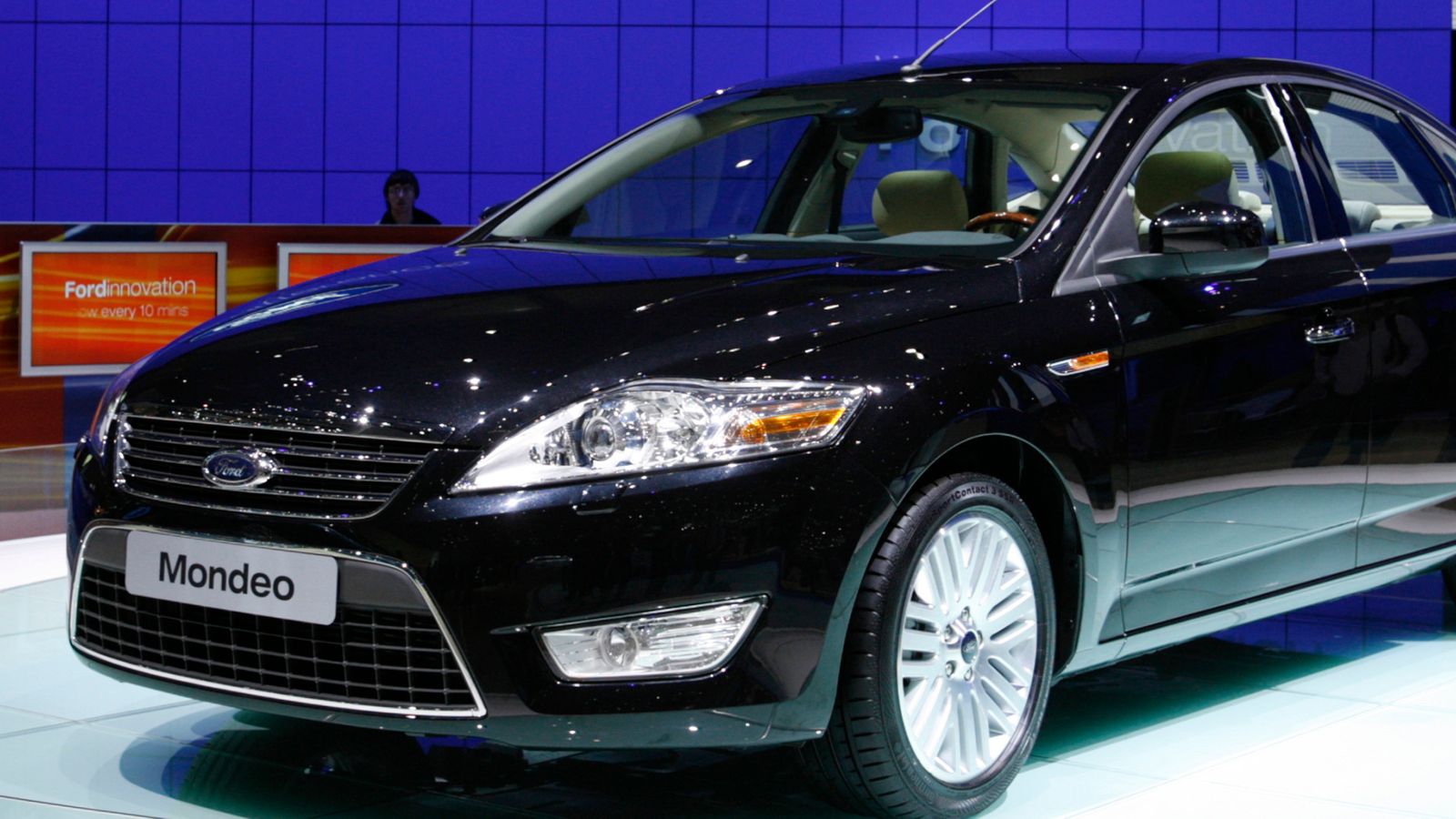Car maker Ford has announced that it is to phase out production of its Mondeo model after nearly three decades.
Launched in Europe in 1993 to replace the Ford Sierra, it has sold around five million cars to date including about 1.2 million in the UK.
Owners of the car came to be identified as a key swing voter demographic in the 1997 general election won by Tony Blair’s New Labour, the so-called “Mondeo man”.
Please use Chrome browser for a more accessible video player
Popular in its heyday as both a family and company fleet car, sales have since dwindled and Ford is switching focus to electric models and sports utility vehicles (SUVs).
In 1994 alone, just under 376,000 Mondeos were sold in Europe but by last year this had fallen to 21,000 while in Britain, sales peaked at just below 87,000 in 2001 and fell to 2,400 last year.
Today, it has been outshone by the popularity of SUV and related “crossover” models, which have grown to represent nearly two-fifths of Ford’s passenger vehicle sales.
The car maker is focusing on the switch away from petrol and diesel vehicles, earlier this year announcing a $22bn investment in electrification, and it said customers were showing more confidence in the new technologies.
“As a result of this growing change in customer preference, Ford will phase out the Mondeo, its large car, at the end of March next year,” Ford said in a statement.
The car maker also announced further investment at its site in Valencia in Spain where the Mondeo is made, with a hybrid engine to be built there from late next year and battery pack assembly capacity being increased.
Please use Chrome browser for a more accessible video player
Kieran Cahill, vice-president of manufacturing at Ford of Europe, said: “Today is another step on Ford’s electrification journey, providing a bridge to an all-electric passenger vehicle future.”
The car maker is aiming to have every car in its European range zero-emissions capable, all-electric or plug-in hybrid by 2026, before going fully electric by 2030.
In the UK, Ford closed its engine factory in Bridgend, South Wales, with the loss of 1,700 jobs in September last year.
It has another engine plant in Dagenham, Essex, and a site making transmissions in Halewood, Liverpool.






















